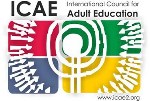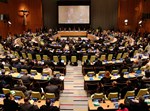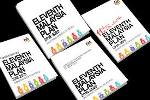Published on Wed, 2016-08-17 22:32
The International Council for Adult Education (ICAE) announces the launch of the call for applications of the ninth edition of the ICAE Academy of Lifelong Learning Advocacy (IALLA) that will be held in Ouagadougou, Burkina Faso, from November 10 to 17, 2016. The ICAE Academy of Lifelong Learning Advocacy is the main international training programme that the International Council for Adult Education (ICAE) has created with the aim of broadening the vision on adult learning and helping new leaders acquire advocacy skills through a participatory methodology that includes an interlinkage analysis within and beyond the field of adult learning and education, and promoting networking as an effective mechanism for collective learning. Since its creation in 2004 they have had a growing number of applicants from all regions and at this moment there are 222 IALLA graduates from 74 countries of all regions. |
Published on Wed, 2016-08-17 20:11
The coup currently on course in Brazil, with great chance of succeeding in the next 30 days, has many faces and short- and long-term effects for the Brazilian population. In little over 100 days of interim government, the politically conservative and economically liberal agenda is being rapidly designed and raising fear among the most vulnerable sectors of the society, such as workers and retirees. It is now clear that the nebulous process of impeachment endangers historical achievements and the very capacity of the Brazilian state to deal with its historical ills. Regarding workers and retirees, sweeping reforms of the labor and welfare systems that would produce significant regressions on their rights are already well under way to implementation, without any concern about the legitimacy or the screen of the ballot boxes. Indeed, many take for granted their approval if the impeachment process goes ahead in the Federal Senate. |
Published on Mon, 2016-08-15 14:40
The United Nations High-Level Political Forum (HLPF) met in New York from 11 to 20 July 2016. It is the central UN body addressing sustainable development, and its chief task is to monitor the implementation of the 2030 Agenda and its global Sustainable Development Goals (SDGs). The HLPF is an intergovernmental Forum in which all 193 Member States of the United Nations can take part. In addition, representatives of major groups and civil society organizations have far-reaching options to participate. However, the Forum neither has any concrete decision-making powers nor does it perform a direct coordinating role vis-à-vis governments and UN organizations. It primarily serves the purpose of sharing information on strategies to implement the 2030 Agenda, presenting national (success) stories and critically analyzing obstacles and setbacks in achieving the SDGs. |
Published on Fri, 2016-08-12 18:59
The main challenge in implementing the 2030 Agenda in Finland will be integrating the principles and targets of sustainable development into all of the country's domestic policies, including those policies related to developing countries. Genuine political commitment is a prerequisite for implementing the 2030 Agenda broadly and coherently throughout the public administration. Different stakeholders have to be engaged and also take responsibility for implementing the goals. Implementation has to be monitored not only globally but also regionally. This requires sufficient planning, coordination and allocation of resources, which in turn requires political commitment to implementing the universal goals but also prioritizing policy actions in order to get a serious and efficient start. Committing to the goals means that attaining them is mainstreamed into all decision-making, and not just considered in a separate action plan. It is important to understand the 2030 Agenda in a holistic way, so that for example gender equality is not only a separate goal but also a cross-cutting theme. |
Published on Fri, 2016-08-12 18:56
The incorporation of the 2030 Agenda and the SDGs into the national development plan-- Eleventh Malaysia Plan 2016-2020 –and Malaysia’s approach to the SDGs demonstrate the same neoliberal biases, aims and agenda of all development plans since 2009. Will it belie the same fetishes for GDP or market/corporate stratagems instead of real socio-economic development plans? Does it package structural adjustment and austerity plans in the guise of ‘rationalizing’ and ‘integrating’ limited resources, funding and collaborative programmes? Will the imaginary crisis of a ‘middle-income trap’ continue to occupy the policy agenda, as opposed to the real crisis of the increasing income divide between the few who have and the many who have not? |
SUSCRIBE TO OUR NEWSLETTER







